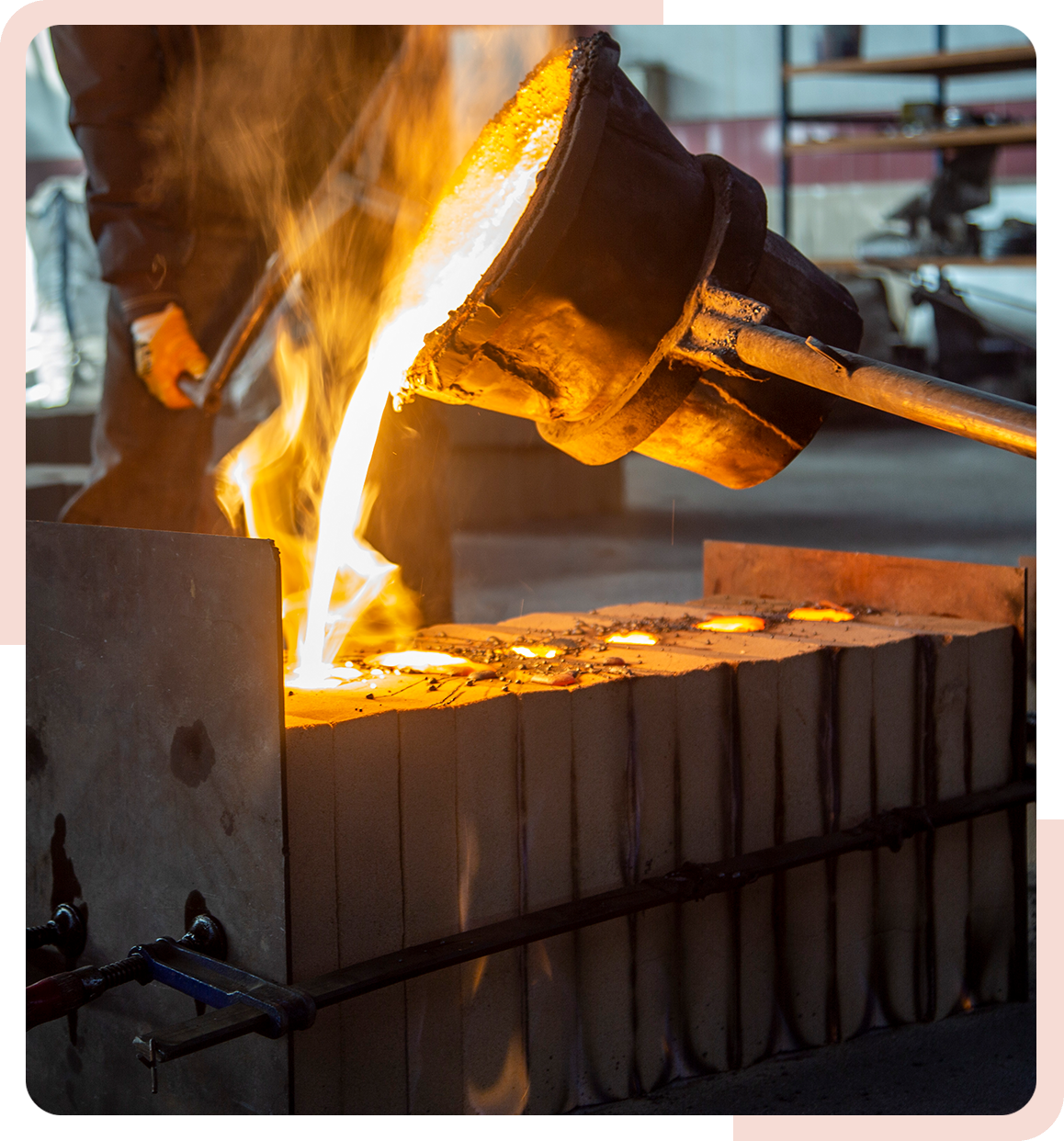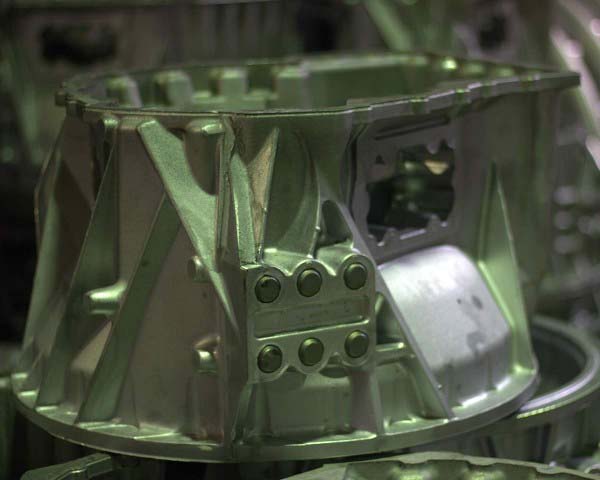Discover the Benefits of Aluminum Casting in Modern Production
Aluminum casting has become a pivotal process in modern-day production. Its lightweight yet durable nature provides considerable benefits for different sectors. The capacity to achieve intricate designs and maintain limited tolerances includes in its allure. Aluminum Foundry. Additionally, the cost-effectiveness and environmental benefits make it a sustainable option. As suppliers look for ingenious remedies, the role of aluminum casting remains to develop. What specific applications and benefits wait for expedition in this vibrant field?
Lightweight Yet Strong: The Advantages of Aluminum
Although several products are used in manufacturing, aluminum stands apart because of its impressive mix of light-weight properties and phenomenal toughness. This special quality makes aluminum an optimal choice for numerous applications, especially in industries such as automotive, aerospace, and construction. Its reduced thickness permits for much easier handling and transportation, adding to minimized energy intake during manufacturing and assembly procedures.
Additionally, aluminum's strength-to-weight ratio is remarkable, allowing producers to create long lasting components without including unnecessary bulk. This particular is particularly useful in fields where weight reduction can lead to boosted fuel effectiveness and overall performance. Additionally, aluminum's resistance to rust boosts the longevity of items, additionally strengthening its allure in contemporary manufacturing.
Inevitably, the lightweight yet strong nature of aluminum placements it as a favored material, promoting innovation and efficiency across numerous fields. Producers increasingly acknowledge that these advantages can cause considerable developments in layout and capability.
Precision and Complexity in Design
As makers embrace the abilities of aluminum casting, they uncover new opportunities for precision and intricacy in layout. This manufacturing procedure enables the production of intricate forms and comprehensive functions that typical approaches commonly struggle to accomplish. The fluidity of molten aluminum allows it to load complex molds, leading to elements with limited tolerances and fine surface finishes.
This precision is especially valuable in industries such as aerospace and automotive, where exact specs are vital for performance and safety and security. Aluminum casting additionally accommodates cutting-edge layouts that boost capability without endangering structural integrity.

Cost-Effectiveness and Effectiveness
Cost-effectiveness and effectiveness are critical factors to consider for suppliers discovering aluminum casting as a production technique. Aluminum casting deals significant cost advantages because of its reduced product expenses contrasted to various other metals (aluminum casting). The lightweight nature of aluminum lowers shipping and handling expenses, and its exceptional thermal conductivity enables quicker cooling times during the casting process, improving total manufacturing rate
Aluminum's convenience allows makers to create complex shapes and layouts, reducing the demand for added machining or assembly. This streamlining of manufacturing not just lowers labor prices however likewise reduces preparations, enabling business to respond quickly to market needs.
The sturdiness and corrosion resistance of aluminum spreadings contribute to longer item lifespans, decreasing replacement expenses over time. Therefore, makers can accomplish a balance of top quality outcome and decreased operational expenditures, making aluminum casting an increasingly attractive option in modern-day production.
Ecological Sustainability of Aluminum Casting
Aluminum casting stands out as an environmentally lasting production choice, particularly due to its recyclability and lowered environmental footprint. The process enables the effective use of aluminum, a material that can be reused indefinitely without losing its homes. This characteristic significantly reduces the need for virgin aluminum, consequently conserving all-natural resources and reducing energy intake connected with extraction and handling.

Applications Across Industries: From Automotive to Aerospace
While varied markets remain to look for that site ingenious materials for production, aluminum casting has proven to be a functional remedy throughout fields such as auto and aerospace. In the auto market, aluminum castings add to lightweight car styles, enhancing fuel efficiency and performance. Components like engine blocks, transmission housings, and wheels profit from aluminum's strength-to-weight proportion.
In a similar way, in aerospace, aluminum casting plays a substantial duty in generating intricate components that call for high resilience and low weight. Airplane elements such as brackets, landing gear, and structural frameworks make use of aluminum for peak performance and security.
The adaptability of aluminum casting allows it to cater to various other industries, consisting of consumer electronic devices, aquatic, and commercial machinery. This convenience not only meets the certain requirements of different applications yet also supports continuous technology in manufacturing processes. Because of this, aluminum casting continues to be a key i was reading this player in modern manufacturing across many fields.
Frequently Asked Questions
Exactly How Does Aluminum Casting Compare to Other Steel Casting Processes?
Aluminum casting deals exceptional strength-to-weight proportions, faster cooling prices, and exceptional corrosion resistance contrasted to various other metal casting procedures. These advantages make it excellent for various applications, boosting efficiency and performance in manufacturing.
What Are the Typical Lead Times for Aluminum Casting Projects?
Common preparation for aluminum casting projects range from two to eight weeks, relying on elements such as intricacy, order dimension, and production capability. Reliable preparation can help lessen hold-ups and enhance job timelines.
Can Aluminum Casting Be Made Use Of for Intricate Designs?
Aluminum casting can without a doubt accommodate elaborate designs. Precision aluminum casting. Its fluidity enables thorough patterns and shapes, making it suitable for complicated parts in numerous industries. This adaptability enhances design freedom while preserving architectural honesty and performance
What Post-Processing Options Are Available After Aluminum Casting?
Post-processing options for aluminum casting include machining, polishing, surface treatments, anodizing, and welding. These methods improve the surface, enhance dimensional accuracy, and boost rust resistance, consequently maximizing the end product's performance and visual charm.
Exactly How Do Temperature Modifications Impact Aluminum Casting High Quality?
Temperature modifications considerably effect aluminum casting high quality by impacting fluidity, solidification rates, and potential problems. Rapid cooling can cause enhanced brittleness, while extreme heat might cause bending or incomplete dental filling of molds throughout casting.
Aluminum casting has actually emerged as a crucial process in modern-day manufacturing. As manufacturers accept the capacities of aluminum casting, they discover brand-new opportunities for precision and complexity in layout. Aluminum casting processes typically produce less greenhouse gas emissions compared to various other steel casting methods. While varied markets proceed to look for innovative materials for production, aluminum casting has confirmed to be a functional service across fields such as vehicle and aerospace. In the automotive sector, aluminum spreadings get redirected here contribute to lightweight vehicle layouts, enhancing gas efficiency and performance.